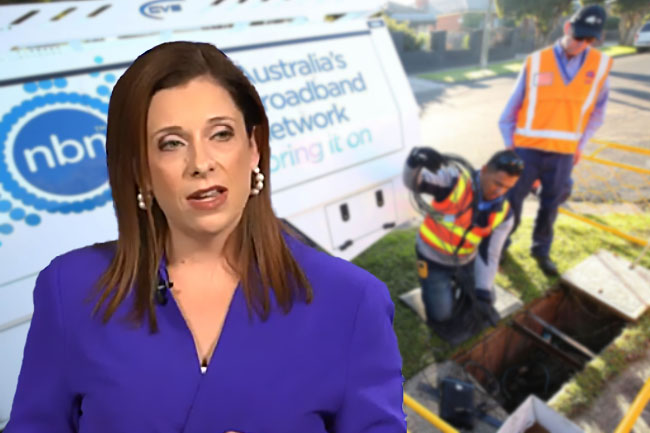The current monopolised price packaging for NBN services isn't friendly towards those struggling with their finances, writes Paul Budde.
THE ACCC HAS SLAPPED a new range of fines and rebate obligations on the providers of NBN services. This shows the deplorable situation the NBN is in. However, it fails to address the far more serious underlying problems with the NBN. This Government-owned monopoly requires far more serious interventions.
A typical feature of monopolies is that they are using a complex pricing structure in order to cloud the market. Add to this the fact that in most situations, monopolies are dealing with utility product and it becomes even more important for them to confuse the market in order to make it as difficult as possible for customers to make the right decision.
These tactics are highly successful, frustrating the regulators who find it difficult to get a good grip on the monopolists and therefore little changes to the complex pricing structures are made or required. The upside for the monopolist is that customers are regularly paying 15-20 per cent more for what they really need as it is simply impossible for them to make the right choice.
In the telecoms industry, mobile prices are a classic example. There are hundreds of packages that customers can choose from. Very few customers are able or prepared to compare them all in order to select the right service.
We are seeing a very similar situation of such complex pricing in the NBN wholesale service that they provide to the retail service providers (RSPs). These companies do have the capacity and the capability to employ exports to unravel the NBN pricing. The problem they face is that they are forced to pay more to NBN Co for a good quality service which leads to consumer prices that are unaffordable for large groups of Australians.
NBN Co is a monopoly, so they can charge what they want. However, the RSPs don’t have that luxury as their customers have a limited budget for broadband services. Many people are simply forced to buy inferior services as they simply can’t afford better quality services.
When the NBN was introduced more than a decade ago, I protested to the low entry level set by the Government at 12 Mbps. At that stage, we were still talking about a full-fibre broadband network which would have sheer unlimited capacity, so I questioned why it would be limited to such a low level.
Now, imagine if in 2009 a 12 Mbps service was seen as insufficient, what about such a service a decade later? This is exactly what the NBN company has created as the low entry service for what our Government sees as a superior broadband network, aimed at providing Australia with infrastructure for its people to participate in the digital society. This is totally inadequate.
There will not be many people who will only use the NBN to do their emails. Surely, for such needs, the low entry service would be sufficient. However, what is happening is that people who simply can’t afford the high prices charged for proper broadband have no other option than buying this low-quality service.
Most of these people will want to use broadband like anybody else. I would even argue that people who are at the lower end of the income scale would need access to good quality broadband even more as they would need to surf the net to find the best prices for the products they buy. More than others, they rely on accessing Government services and they need it to look for jobs or seek better jobs.
They will have a limited budget for going out to such places as restaurants and theatres and are relying on entertainment at home. We now have a range of good video-based entertainment services via the internet. However, with the 12 Mbps service, they will rapidly be running out of capacity. The situation with the 25 Mbs products is not much better.
The NBN company has constructed a set of new wholesale prices in such a way that users – other than those who will use the service only for email – will rapidly run out of capacity. They have created a $35 product for the 12 Mbps service, however, this becomes a $43 service as soon as they start using it. For the same reason, the $37 25 Mbps service turns into a $45 service. You need experts to wade through the complex wholesale structure that the NBN company has concocted in order to get some clarity on the matter.
It is a sad story that in times when we see large parts of our society struggling with their finances, the Government lets this inequality happen. I would argue that we should make a basic broadband service freely available to all, such as the 12Mbs service. From here, have incremental charges on top of that, for example, $15 for a residential 25 Mps services and $25 for a residential 50 Mbs. Beyond that, charge commercial prices.
I would further argue that once we have a full-fibre network in another decade or so, the free services should be at a minimum of 50 Mbs, simply for its national economic and social benefits. This would give people a boost, who proportionally can benefit more from the internet for jobs, education, healthcare, Government services and access to low-priced products and services. By improving their economic and social position, our society as a whole would benefit from this.
The fact that many of these people are currently shut out of affordable good quality broadband has another serious negative effect. They are not being given the opportunity to develop the digital skills which have become essential in our economy and in our society. By not providing good quality broadband at an affordable price, we are only widening the gap between the haves and the have-nots.
As mentioned in previous NBN analyses, many broadband subscribers would be better off with the old ADSL service than with the current NBN, so in some cases, we are going backwards rather than forwards. So much for building a smart country.
Paul Budde is managing director of Paul Budde Consulting, an independent telecommunications research and consultancy organisation. You can follow Paul on Twitter @PaulBudde.
 This work is licensed under a Creative Commons Attribution-NonCommercial-NoDerivs 3.0 Australia License
This work is licensed under a Creative Commons Attribution-NonCommercial-NoDerivs 3.0 Australia License
Support independent journalism Subscribe to IA.












